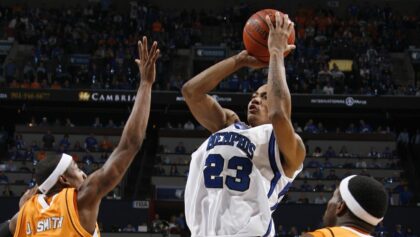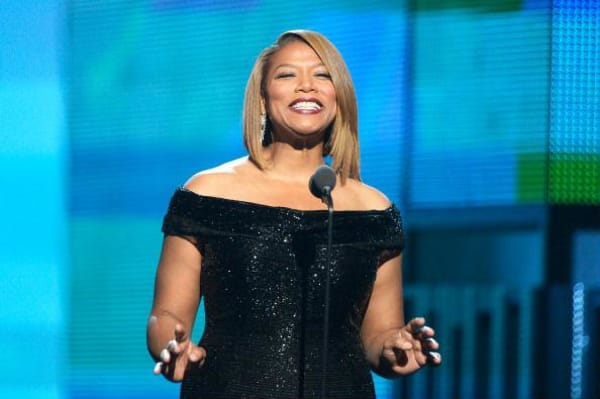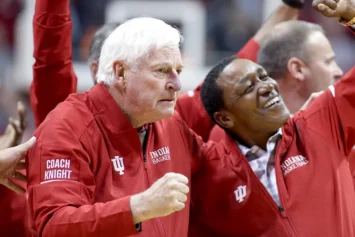Isiah Thomas’ eyes served as his built-in GPS system, strategically roaming St. Sabina Church until he had systematically mapped out the whereabouts of every single gang member who’d dared to attend his and Rev. Michael Pfleger’s inaugural PEACE Day hoops tournament.
The pride of Chi-Town had returned to where it all began, summoned by the desperate pleas of the masses and the depths of an epidemic so vile few other metropolises have seen the likes of it in recent times.
In a recent five-day span, a 15-year-old girl, just back from performing at President Obama’s inauguration, was shot and killed leaving school, and a single mother of four was forced to bury her youngest and the last remaining of her children, all of them having died of street gun violence.
Sadly, the lives of Hadiya Pendleton, Ronnie Chambers and all the others have now been reduced to tragic symbols, perplexing variables in the maddening equation that has the city ahead of even last year’s record-setting homicide pace.
In spite all his worldly travels, Thomas heard the cries. One-by-one, he exchanged handshakes and stern words with the wayward, desperately hoping all the related crosstown lessons shared with him during his “K-Town” upbringing still held resonance.
“We’re the only ones that can save ourselves,” said Thomas. And, the one-time “Bad Boys” ringleader is ready and willing to take the lead. But he knows the stakes have never been higher nor the opponent more formidable.
“This,” he pledges, “will work because it has to.”
TSL: The streets are so treacherous right now. The city is already ahead of last year’s pace for killings. How much can basketball really change the climate in “Chi-raq?”
Isiah: This league is about a lot more than just basketball; it’s about a lot more than just guys running the floor and keeping score. Our goal is to put our young people in the right places, put them in the hands of the right people. We’re working to reopen all the park districts in the city and making those facilities safe havens and learning zones reserved for our kids. Another part of the equation is putting our kids around those who should be viewed and respected as life teachers. Those are the community folk, and back in the day neighborhoods where the elders were respected made for the best communities.
TSL: What’s different about today’s Chicago and the place where you were able to grow and flourish?
Isiah: People, especially young people, just don’t take the time to get to know one another. It’s a lot easier to hurt someone you don’t know than it is a person you’ve come to have a level of respect for. Playing sports builds relationships; you can play a single game with a guy and from that experience a bond of respect and admiration can form. That can make all the difference between someone choosing to a hurt a person they view as a stranger or someone saying ‘nah, I know him, give my boy a pass.’
TSL: Yeah, but murders are going down by the hour in Chi-Town. How much of a chance do some of these kids really have? Could even Isiah Thomas grow to be Isiah Thomas in this era?
Isiah: Chicago and all the other big cities have always had gangs, drugs and weapons. The problem became worse when we started taking P.E. out of the educational system and recreational sports out of the communities. That made it where only the athletes were gaining the benefits and type of discipline that goes hand in hand with playing sports. Gangs and teams function a lot in the same way. The team has uniforms, so do the gangs. The team has its colors, so do the gangs. The team has values and an honor code, so do the gangs. The difference is the team is passing the basketball and the gang is passing drugs and weapons.
TSL: So should playing sports be a requirement for all young people?
Isiah: Everyone doesn’t have to play sports, but everyone has to have some form of play. What I mean by that is everyone engages themselves in something. That’s why it’s so important that we’re able to convert these park districts into gathering places and safe zones. Places where families can come and kids can play games and feel safe. It’s that environment in which they have a chance to discover themselves and determine who they want to become. I’ve personally already talked to a large following of the gang leaders and they’ve agreed to a truce of no more murders at the parks, churches or on school properties. These will become our sanctuaries.
TSL: Beyond gaining those kinds of assurances, what others things were discussed?
Isiah: You realize you’re talking to some of the smartest guys you’ll ever meet. A lot of what they’ve become boils down to opportunities, or lack thereof. I’m positive that if we could give the gangs another product to sell, something other than drugs and weapons, these would be some of the world’s best-run organizations. If we can just get people to start talking again, arm them with knowledge instead of weapons, we’ve got a chance. A lot of them believe that too.
TSL: Since 2008 more than 530 residents under 21 have been killed in street violence and nearly 80 percent of the victims came from minority communities. How does hearing of such genocide make you feel?
Isiah: It’s why I’m here and working as hard as I am with Mayor Emanuel. We’re committed to raising at least $480,000 over the 60 days that will be used to mentor at-risk youth, instantly providing 3,200 additional mentoring opportunities across the city. We’re targeting teens as young as 13, getting them involved in our programs before the streets even takes notice of them.
TSL: You’re raising some of the money by soliciting community donations. Some have questioned this approach as putting more demands on an already downtrodden community. Is there a method to that perceived madness?
Isiah: We want to have the community involved and taking ownership for the changes that are coming to their communities. They’re the ones that have to be the difference-makers and having them invested is critical. Keeping our streets safe is everyone’s responsibility and this partnership will allow all to play a part.
TSL: From people once expecting you to be the best coach/GM in history, to now having some of the answers, are there times when you feel people expect too much of you?
Isiah: I’ve been blessed, and my mom always told me to whom much is given much is expected. I figure it all comes with the territory.
TSL: You were recently honored by President Clinton with a life-time humanitarian award for the work you’ve done in at-risk communities. Flattering?
Isiah: Most surreal moment ever. With all he’s accomplished, all he continues to do as a humanitarian, for him to recognize me for trying to make a difference was very powerful.
TSL: Lighter note, how long before you see yourself on the sidelines again as a coach, GM or even owner?
Isiah: I definitely want back in, whether it’s as a coach, general manger or whatever. My gift is basketball; I would love the chance to work with kids again. I’m keeping my options open.
TSL: Diehard Isiah fans and even some hoops purists still clamor you were shafted in being left off the 1992 Original Dream Team. Thoughts?
Isiah: I competed against all those guys and I proudly look back on how I fared. I can’t speak about the selection process because I wasn’t involved. What I will say is I’m proud of my career. Twenty years after Dream Team, that team is still historic, but, yeah, maybe I could have added another dimension.
TSL: What’s your advice for Derrick Rose?
Isiah: Get healthy; more than anything get healthy. It’s hard for me to say what I would do in his situation because every athlete’s body responds differently and only he knows what he’s feeling. Derrick’s a great talent; as fans, we would all be cheated if he cheats himself and tries to come back too quickly.
TSL: While you’re handed out advice, what about the Lakers?
Isiah: Who do you want to be? It all starts with philosophically figuring that out. While they’ve always had great wing players like Magic, West and Kobe, fundamentally, they’ve always built around the center position. Now they have a coach who doesn’t necessarily believe in center play, one who plays centerless basketball. It’ll be interesting to see what direction the organization takes.
TSL: You laced up against Jordan and nowadays you’re paid to study LeBron. Whose more dominant: the MJ of 1991 or the LBJ of today?
Isiah: They’re both great and I don’t think you can take anything away from either. We all know Jordan did incredible things in coming to dominate the record books, and the season LeBron is having right now will go down as one of the top five of all time. Pick your poison.
TSL: Chris Paul’s game is being compared to the way you played; especially in the way he’s able to command a team. Legitimate?
Isiah: I have great respect for him. He’s on his journey right now where he completely understands the game and position. His leadership skills are such if he wasn’t playing basketball you could easily see him running for office. You combine that leadership quality with his talent and it’s a powerful force.



